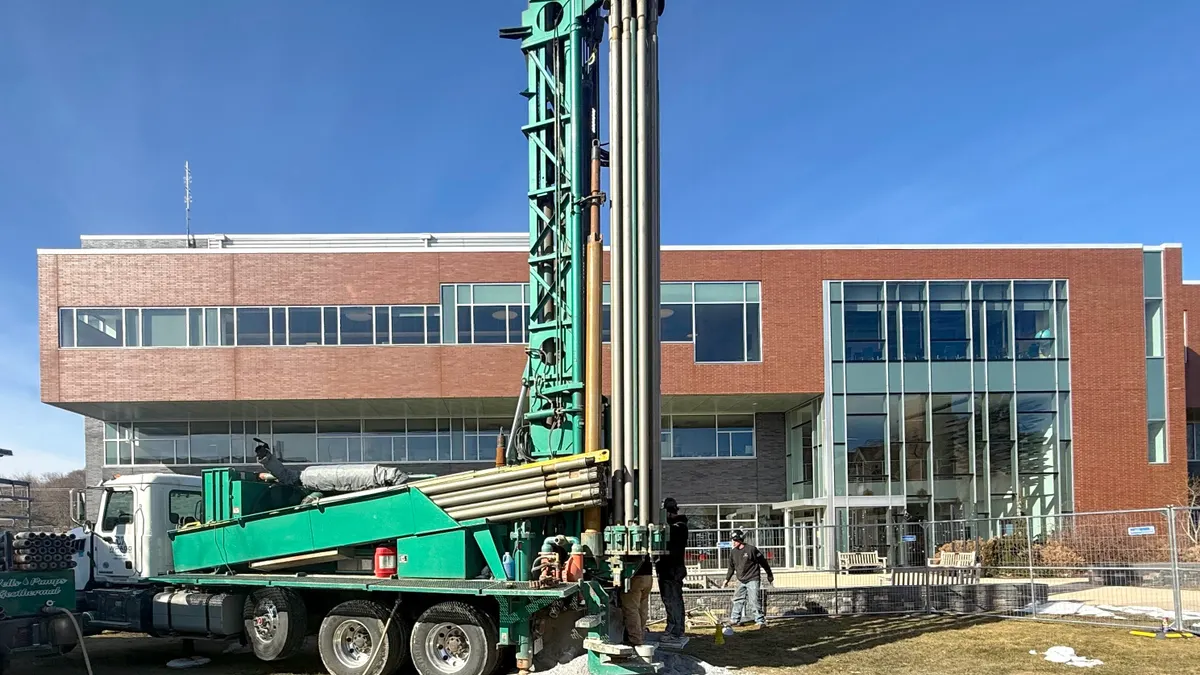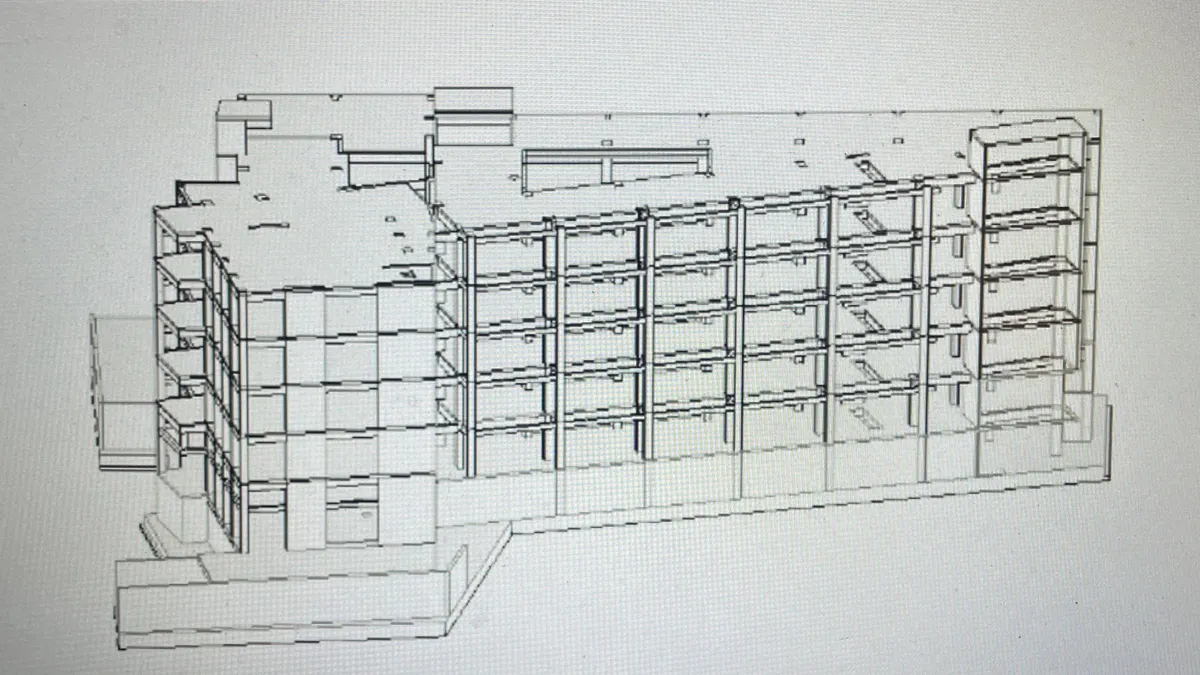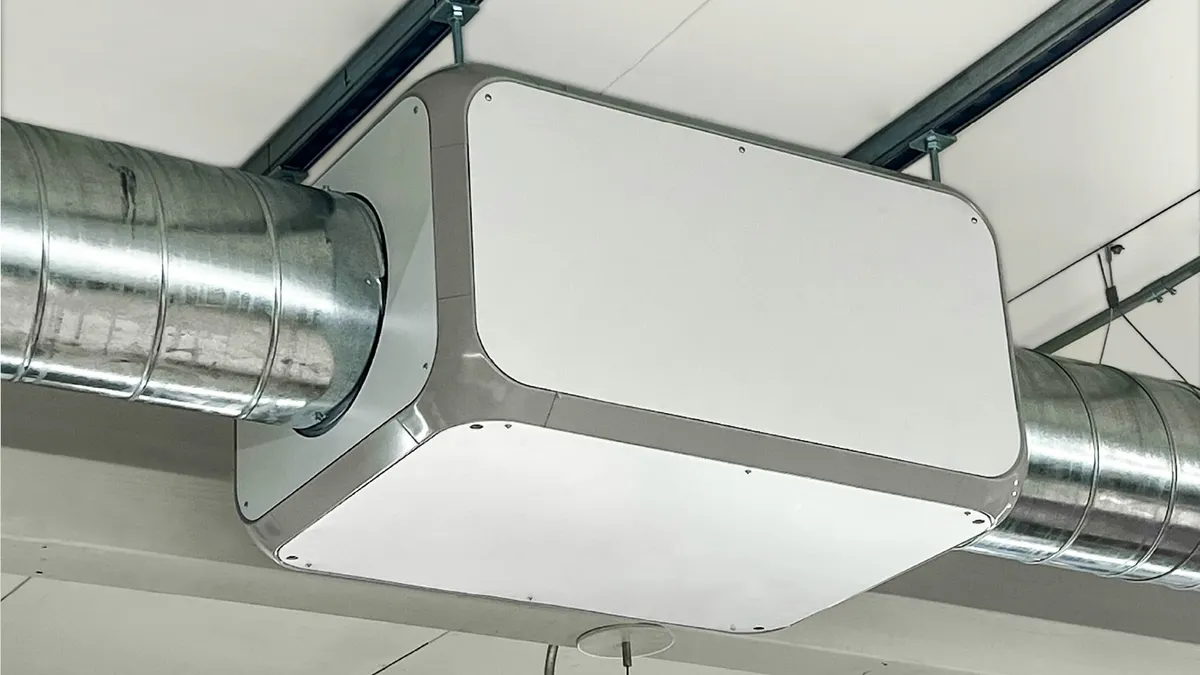In 2023, real estate owners, operators and facilities management teams were grappling with high interest rates, ongoing sustainability efforts and a return-to-office push that is reshaping how buildings are managed.
Facilities Dive asked readers and other experts to share how they think their work will change in 2024. Here’s a selection of responses we received.
The following responses have been edited for clarity and length.
Generative AI will revolutionize building operations
“AI and machine learning will begin to drive significant new capabilities in workplace software that will set the groundwork for future autonomous buildings.
The role of traditional AI, which is trained to tease insights out of limited sets of data according to specific rules, will continue to grow. But generative AI applications will take real estate, and many other industries, by storm over the next year and beyond. Technologies that use AI to control things such as HVAC or building management systems based on utilization, environmental, weather and other types of data will revolutionize how occupiers and facility managers operate workspaces.
AI will be front and center in providing many of the insights that enable organizations to refocus and rationalize their office space to align with their mission, to advance their net-zero goals and to create the workplace experience their coworkers need to do their best work.”
—Brian Haines, chief strategy officer, FM:Systems
Building and energy performance measurement become real as compliance periods take effect
With New York City’s LL97, “we'll start to see some building owners, developers and facilities managers face the reality that the law is actually happening. As a utility, we will see a lot more activity from customers inquiring about building assessments and energy assessments. The consulting field will see more activity from customers looking for design options from engineers. [Communities will] look at the success and failures happening in other states or cities.”
—Frank Cuomo, general manager, Consolidated Edison
Buildings will install advanced building management systems to improve efficiency, meet net-zero goals
“Buildings are one of the largest opportunities for us to reach net-zero goals. As a category, it's a big contributor to emissions and energy use. We have technologies available today in terms of building management systems, improved sensors, controls and optimization [that are] going to take us a long way in improving efficiency and contributing to net-zero, [but] there's a lot more to be done.”
—Sreedhar Sistu, vice president of AI, Schneider Electric
Soft skills, data security and face time will become more important
“Soft skills will become more important as tasks once done manually by people get automated and the remaining tasks become more human. AI-driven technology will become the new office manager.
With new forms of AI emerging and being used throughout the office, new data risks will doubtless grow alongside the technology, [thus] data-privacy issues will heighten.
Face time gives a lift to the economy. More sales activity is going to happen in person. As digitally driven as we’ve become, people are tired of being bombarded with a million spam emails a day. Looking someone in the eye and developing a deep level of trust will become catalysts for driving business relationships and, ultimately, sales.”
—Micah Remley, CEO, Robin
Facility managers’ planning, technology and talent management roles will grow
“2024 and beyond will bear more opportunities for those in facilities management. We anticipate several things will occur:
- Enhanced training and development to integrate new and emerging technologies [will] help facilities managers cover more ground, reduce time, and gain cost efficiencies.
- Facilities managers will continue to engage in strategic and upstream planning activities [and] to be at the center of strategy; IT security; health, safety, security and environmental risk; HR; and portfolio planning.
- Return-to-office pushes will create more opportunity but also challenge for facilities managers; the pressure to reduce costs will mean careful planning and management of staff and suppliers while looking for new and innovative ways they can create more effective work environments for returning employees.
- As tenured facilities managers and technical staff retire, leaving invariable gaps, organizations will grow and develop next-gen leaders with seasoned ex-military professionals and trade school interns or apprentice programs. Contingency planning [will] keep ‘soon-to-retire’ employees in the workforce longer to help with the transition for the next-generation leaders.”
—Cheryl Carron, Americas chief operating officer, Work Dynamics, JLL
Building operators and tenants will work together to bring workers back to the office
“For mid-sized to large-sized [organizations], we see a continued trend to look for opportunities to rightsize their footprint overall and to deploy physical [changes] and technology to make it an attractive place for people to come to work. There's going to be an enhanced focus on culture and change programs to help get people back to the office. So, in the next year or two, there will be a process of testing, exploration and proof-of-concept [of those programs].
We're also seeing a strong interest in environment and sustainability, and what organizations can do to leverage technology solutions that are software-based to improve the energy efficiency of their operations and sites.”
—Francisco Acoba, corporate real estate consulting and technology practice co-lead, principal of strategy and transactions, Ernst & Young
Incentives will push sustainability interventions forward
We're going to see a lot more commitments from a lot more companies that are going to be more aggressive than 2050 net-zero goals. There's pressure up and down the supply chain — all the way from [companies] leasing the buildings and occupants to public pressure and the narrative in the marketplace. We’ll see significant [incentives]” such as the Inflation Reduction Act Section 179D tax credit.
—Brett Trenga, director of sustainability, Kingspan North America
Hybrid work prompts new wireless connection, monitoring and automation systems
“In 2024, we’re going to need two things from wifi automation solutions: visibility into the remote user experience and the assurance of uninterrupted video collaboration applications. Even with return-to-office mandates, our workforce is going to remain mobile. People will be in the office, occasionally at home, maybe in a hotel, airport, or coffee shop. IT needs visibility into the user experience and the network environment, no matter where someone sets up, to resolve issues.
As for video collaboration, video calls, while great for communication, put an added stress on the network because they depend on real-time data. Facilities managers need a way to proactively manage these applications so that everyone has assurance that they will work to support business, not delay it.”
—Roger Sands, CEO, Wyebot
Sensor technology will monitor building health and safety
“The surveillance industry will help tackle health monitoring. Sensors will be deployed in each building, analyzing CO2, gases and smoke, detecting carbon monoxide and flame, and measuring heat, temperature and humidity. The application of these technologies may expand to monitor health and safety parameters, transforming a broader spectrum of public well-being.”
—Dean Drako, founder and CEO, Eagle Eye Networks
Facilities managers will become strategic partners in healthcare operations
”Healthcare systems and entities [will be] increasingly turning to experienced thought leaders and subject matter experts in facilities management for strategic partnership. This involves collaborating on technology, implementing innovative workforce strategies, and demonstrating tangible cost savings that align with their mission. There is a growing recognition of the untapped potential for facilities management to play a pivotal role in board-level discussions and long-term planning. This extends to viewing real estate as a crucial element in workforce experience, recruitment and retention.”
—Alison Flynn Gaffney, president, healthcare division, JLL


















